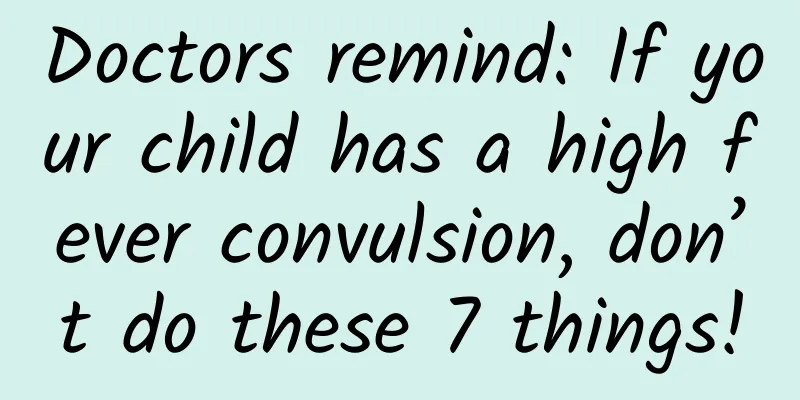What to do if you are iron deficient during pregnancy?

|
In life, everyone knows that iron is an essential trace element for the human body, so it is very important to the human body. In life, especially for pregnant women, if the expectant mother does not supplement enough iron in time, or has severe morning sickness, is picky about food or has improper diet, it will cause the expectant mother to be iron deficient. If an expectant mother is iron deficient, it will not only affect the growth and development of the fetus, but also affect the physical health of the pregnant woman. So what should you do if you are iron deficient during pregnancy? What are the symptoms of iron deficiency? Mild iron deficiency anemia can make expectant mothers feel tired, while more severe iron deficiency can lead to iron deficiency anemia, which can cause expectant mothers to have loss of appetite, irritability, listlessness, fatigue, palpitations and shortness of breath, dizziness, tinnitus, memory loss, etc. What are the effects of iron deficiency? Due to physiological changes, pregnant women's blood volume will increase as physiological needs increase, but the rate of red blood cell increase is slower, which means that the blood of pregnant women is diluted. Therefore, varying degrees of anemia in women after pregnancy has become a common phenomenon. Anemia in women of childbearing age, especially during pregnancy and lactation, not only affects fetal development, causing miscarriage, stillbirth, premature birth, underweight and neonatal diseases, but can also induce gestational hypertension. In severe cases, it can affect the heart function of pregnant women and pose a life-threatening risk to mother and child. If an expectant mother develops anemia due to iron deficiency, the amount of iron stored in the fetus's liver may be insufficient, which will affect the baby's early hemoglobin synthesis after birth and cause anemia. How much iron do pregnant women need every day? Nutritionists say that according to recommendations on nutrient intake, an average adult needs to take in about 15 mg of iron per day. However, during the entire pregnancy, about 300 mg of iron is transported from the mother to the fetus and placenta to form fetal hemoglobin and store it for use after birth. Therefore, pregnant mothers need to increase their daily intake by 30 mg compared to the average person, which means they need to eat 45 mg of iron a day to meet the needs of themselves and the fetus. How do pregnant women supplement iron? First, eat more iron-rich foods Eat more iron-rich foods. The iron contained in animal liver, chicken blood, duck blood, meat and fish can directly combine with hemoglobin in the human body, so it has a relatively high bioavailability and is the best source of iron. For example, pork liver contains 25 mg of iron per 100 grams, and its absorption rate is also high. It is best to eat it 2 to 3 times a week, 100 to 150 grams each time. In addition, you can often eat lean meat floss, black fungus, kelp, seaweed, lotus seeds, soy products, dried shrimps and other iron-rich foods. While supplementing iron in the diet, attention should be paid to supplementing protein. Because the production of hemoglobin requires not only iron but also protein, only by supplementing sufficient protein can the effect of iron supplementation be improved. Pregnant women who have anemia should take iron supplements in addition to adjusting their diet. Generally, ferrous acid is taken orally, and the dosage should be followed according to the doctor's advice. In severe cases, multiple small-volume blood transfusions should be given to correct the hemoglobin to above 9 g/100 ml. Second, eat more foods that help iron absorption Fruits and vegetables can not only supplement iron, but the vitamin C they contain can also promote the absorption of iron in the intestines. Therefore, while eating iron-rich foods, it is best to eat more fruits and vegetables, which also have a good iron supplement effect. It is best for expectant mothers to eat eggs and meat at the same time to improve the utilization of iron in eggs. Or you can eat eggs and tomatoes at the same time, the vitamin C in tomatoes can increase the absorption rate of iron. However, foods such as milk, coffee, and tea will hinder the body's absorption of iron, so it is best not to eat them with iron-rich foods. Warm reminder: Not all foods rich in iron can supplement iron. Spinach is a good example. Spinach is high in iron, but unfortunately, most of the iron cannot be absorbed by the body. The same food includes dark green vegetables, black fungus, black rice, etc. Although they are high in iron, they must be broken down by gastric acid and then reduced to ferrous ions before they can be absorbed. They have low bioavailability and are not a good food source for iron supplementation. 4 Ways to Improve Iron Absorption In addition to getting enough iron from food, what other dietary tips can increase the body's absorption rate of iron and achieve twice the result with half the effort? It is recommended that mothers start with the following points. Sugar Generally, sugars such as fructose and brown sugar can promote iron absorption, but consuming too much sugar can lead to weight gain, obesity, and even cause gestational diabetes or hypertension. Therefore, nutritionist Yu Yiyan reminds pregnant mothers that it would be better to start with the cooking method, such as cooking high-iron ingredients in a sweet and sour way to avoid additional direct intake of sugar. Organic acid Foods rich in organic acids such as citric acid and lactic acid are also a major focus in promoting the body's absorption of iron. Citrus fruits such as lemons, tomatoes, grapefruits, etc. can be consumed with high-iron foods. Meat Generally speaking, whether red meat (such as beef, lamb) or white meat (such as fish, chicken), as long as it is eaten with high-iron ingredients, it has the effect of increasing the body's absorption of iron. Vitamin C Experts say that fruits such as oranges, cherries, grapefruits, and lemons are rich in vitamin C. After eating high-iron foods, mothers may wish to drink these fruits or natural fruit juices that are freshly squeezed without added sugar. These are all good ways to enhance iron absorption. |
<<: How long will early pregnancy pain last?
>>: How long will implantation pain last?
Recommend
Six kinds of nutritious dried fruits are the best snack companions for women
In fact, various dried fruits have their own uniq...
How does my period come? Why does my period come?
Menstruation is a sign of a woman's physical ...
First time having sex, pain down there
Women who have not experienced their first time s...
What is the healthy diet recipe for women
The role a woman plays in the family and society ...
20 Things Women Should Never Do in Bed
1. Sleeping with makeup on: Some women, especiall...
How to treat hair loss in girls
Many female friends will encounter a problem, tha...
Treatment for back pain after childbirth
Back pain after childbirth brings great pain to m...
A four-year-old boy had a big bump on his right eyebrow. It turned out to be a quail egg-sized tumor growing in his eye socket.
A four-year-old boy had a bulge on the right eyeb...
What happens if protein is deposited in the alveoli? How to treat it?
Author: Fang Baomin, Chief Physician, Beijing Hos...
Lower abdomen pain at the end of menstruation
Some women’s menstrual period ends in three days,...
What does a positive HPV test in gynecology mean?
Gynecological HPV is a very harmful disease in re...
Is it better for pregnant women to have a natural birth or a caesarean section?
Women can choose between natural birth and cesare...
Precursor of accessory breast cancer
Accessory breasts are a common breast disease in ...
What is the difference between early pregnancy and before menstruation?
A woman will face several major events in her lif...
In addition to radiotherapy and chemotherapy, cancer can also be treated with light!
Author: Zhao Guohui (Shanghai Institute of Optics...









